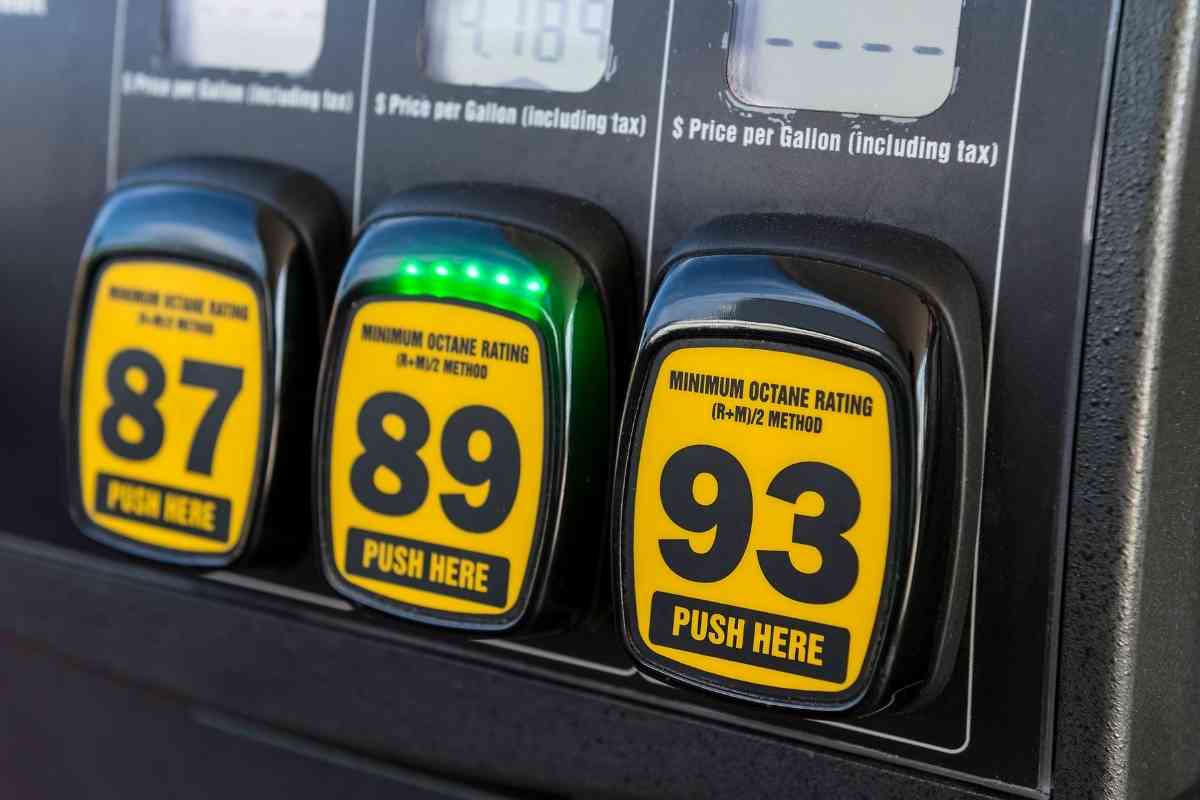Does Premium Gas Clean Your Engine?
Are you normally someone who fills up on regular gas?
Have you ever wondered if switching to premium fuel might clean your engine from the gunk and grime that builds up in there over time?
I admit, I once wondered the same thing myself. The only cars I had ever owned were old heaps that didn’t warrant the price jump to premium fuel.
Then I got a newer vehicle and decided to do some digging.
Let me tell you about what I found and how you can tell if your vehicle can have premium fuel put into it. Let’s find out if it will actually clean your engine.
Does Premium Gas Clean Your Engine?
Premium gas contains detergents and additives that clean your car’s fuel injectors a small amount more than regular gas. It may also clear carbon build-up out of engines, but the benefits are hardly worth the increase in price.
But is it really worthwhile for you to fill up frequently – or even just occasionally – on premium fuel?
What if your vehicle does not require that you use it?
And what happens if you don’t put it into a vehicle that requires premium fuel usage?
Read on to get these burgeoning questions answered.
First, Some Facts About Fuel Grades
Years ago, there used to be quite the difference between the performances of engines that took regular gas versus those that required premium fuel.
Due to their much higher compression ratios, high performance engines demanded the use of premium fuel.
Putting regular fuel in them meant you were not going to get anywhere near the degree of performance promised.
There were additives in premium fuel back then that meant those engines could endure a lot of hard driving – something you just didn’t do on non-performance engines in those days.
Looking at gas prices today, you probably shudder when you see how much more expensive premium can be over regular unleaded.
A 20-50 cent price jump is no laughing matter.
Regular unleaded is expensive enough as it is, so if you don’t have to put premium in, you might think it is wise to avoid it.
Truth be told, filling up on premium might not even garner the results you desire.
Why is this the case? Well, think about what differentiates regular unleaded from premium fuel.
The octane rating on fuel sure does.
Just pay attention to the numbers next to each one.
An 87-octane rating is what regular fuel sits at while premium is rated at 91-octane or above.
The point of buying high octane fuel is to stop the occurrence of early fuel ignition, as this leads to that ever-dangerous engine knocking that can wreak havoc on your car’s engine.
High octane fuel is typically reserved for high performance engines since this fuel can be compressed and heated much more than regular gas before it self-combusts.

Which Fuel to Use Based On the Vehicle You Drive
You might be asking yourself “What happens if I don’t put premium gas in my car?” Don’t worry, it won’t explode or anything.
But a minor cost-cutting method can spell problems for a high performance engine requiring premium fuel down the road.
Switching over just to save money could result in that dreaded engine knocking and lead to further damage.
You probably don’t want to know how expensive it is to replace a high performance engine.
Trust me, the cost-cutting method isn’t worth it for those engines.
Some drivers claim that occasionally filling up on premium fuel cleans out their cars’ engines, thereby improving their performance and fuel economy.
The truth is, there is so little difference that the cost of using premium fuel really cannot be justified.
The uptick in fuel economy is miniscule. You probably won’t notice it one bit.
And there are no studies right now that demonstrate an improvement in your engine’s vitality if you occasionally fuel up on premium.
At least Canadian premium fuel is ethanol-free, which is actually more helpful if you have to leave your vehicle parked for weeks on end.
But this simply is not the case here State-side.
But, due to emissions regulations having become what they now are here, regular fuel has a higher quality than it used to.
Premium Gas: Is the Extra Cost Worth It?
Let me just reiterate: No, the extra 20-50 cents you will pay for premium fuel is not worth the cost.
If your vehicle can take regular gas, fill it up with regular gas.
There is nothing to validate the claims floating around out there that sporadically using premium improves your engine’s performance and fuel economy.
And, quite frankly, if you are using premium to reduce engine knocking, my friend, you’re just treating a symptom, not providing the cure.
If your engine has developed a knock, you need to take it in to a licensed mechanic to get inspected and diagnosed.
Hot spots and carbon deposits can cause an engine knock, and they definitely need to be remedied by a professional.
Closing Thoughts
Given how expensive even regular fuel is right now, loading up on premium when you don’t have to is wasteful.
But if your vehicle requires it, do not dare skimp and go for regular instead.
That will set you back even more in the long-run.
Follow your vehicle manufacturer’s recommendations.
Premium fuel does have those cleansing additives that a high performance engine needs.
But don’t forget to address your vehicle’s other needs.
Stick to your regular service appointments and get your oil changed on a routine basis.
Doing these simple things can benefit your engine and fuel economy, preventing problems from developing down the road.
